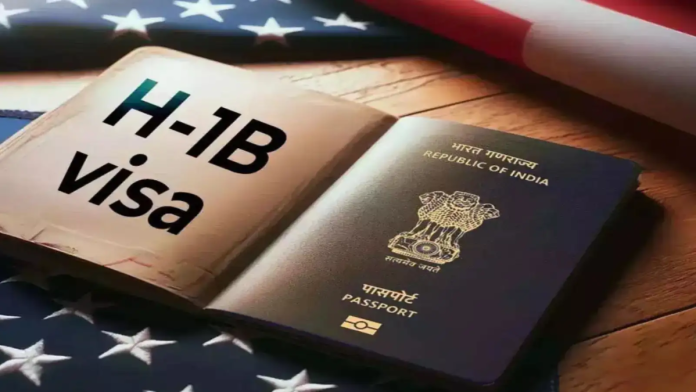The U.S. government has launched a major new effort called Project Firewall to investigate how companies use the H-1B visa program. This move is aimed at making sure companies follow the rules when hiring highly skilled foreign workers. It is one of the most significant steps ever taken to monitor the program, which allows businesses to hire talented professionals from other countries for jobs in the United States.
What Project Firewall Is All About
Project Firewall is an enforcement initiative led by the Department of Labor, under Labor Secretary Lori Chavez-DeRemer. The program will actively look into companies that might be abusing the H-1B visa system. Previously, investigations happened mostly if a worker complained. Now, the government is taking a proactive approach.
The H-1B visa program lets employers hire foreign workers for specialty jobs, often in tech, science, or engineering. Companies must follow strict rules, such as paying fair wages and providing benefits equal to what American workers receive. Employers are also expected to show that they tried to hire U.S. workers before bringing in someone from abroad.
Project Firewall will check if companies are doing these things correctly. If they are not, the government can take action, including requiring companies to pay back wages, imposing fines, or stopping them from hiring H-1B workers in the future.
China lures Indian techies with new K visa as U.S. slams H-1B with $100,000 price tag
Why the Government Is Taking Action
Officials, including President Donald Trump, say the H-1B program has sometimes been used to hire foreign workers at lower wages, which can affect American employees. Some companies may hire international workers willing to work for less or accept less favorable conditions. Project Firewall is meant to make sure that highly skilled jobs go to Americans first, while still protecting the rights of foreign workers.
Alongside this initiative, the government introduced a new $100,000 fee for new H-1B visa applications. This fee is far higher than the previous cost, which ranged from $1,700 to $4,500. The goal of the fee is to discourage misuse of the visa program. However, it will not affect current H-1B holders or visa renewals. Certain professionals, such as doctors and medical residents, may also be exempt because the fee could create problems in areas already facing worker shortages. This clarification was noted by White House spokesperson Taylor Rogers and discussed by healthcare leaders like Bobby Mukkamala, President of the American Medical Association.
The Department of Labor will personally certify investigations into companies suspected of breaking H-1B rules. This step makes the initiative more serious than past efforts, which were mostly case-by-case and complaint-driven. Companies that come under scrutiny may have their records examined, including wages, working conditions, and whether they tried to hire Americans first. Experts, such as Professor Ron Hira of Howard University, have noted that H-1B enforcement has historically been limited.
JPMorgan to Lobby Policymakers After Trump Slaps $100K Fee on H-1B Visas
Who Could Be Affected By Project Firewall
Tech companies, especially those in information technology and STEM fields, could face the most attention under Project Firewall. Companies that outsource work or hire large numbers of foreign workers may be the first to be investigated. Infosys and Cognizant, for example, could come under early scrutiny.
The H-1B program has around 730,000 foreign workers in the U.S., with another 550,000 dependents. Each year, 85,000 new visas are issued through a lottery system. The initiative aims to make sure these workers are hired legally and fairly, without undercutting American employees.
Employers found not following the rules could face civil penalties, fines, and restrictions on future H-1B sponsorships. The government will also coordinate with other agencies to ensure that American workers are not being discriminated against in the hiring process. Commerce Secretary Howard Lutnick emphasized the need for companies to hire Americans first and make sure foreign workers meet top qualifications.
The new rules and investigations come at a time when the U.S. government is also tightening immigration policies more broadly. This includes stricter visa rules, additional screening, and efforts to protect American jobs.


